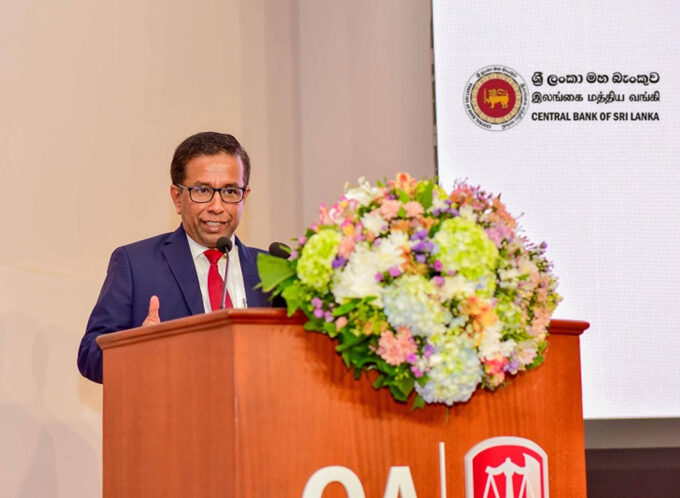Arugam Bay is famous for its beautiful coastline and great surfing spots.
It has been an important part of Sri Lanka’s tourism for a long time.
Recently, however, new developments have raised concerns among local business owners and government officials.
A large number of Israeli nationals have been coming in on tourist visas, causing noticeable disruptions in the area.
There are claims that these visitors are taking part in business activities while in the country.
This situation has made it hard for many local entrepreneurs to keep their businesses running, as foreign nationals seem to be taking over some parts of the tourism industry.
Arugam Bay: A Hub for Tourists
Arugam Bay is one of the most prominent tourist destinations in Sri Lanka, particularly for surfing enthusiasts.
Its warm waters and favorable waves have attracted international tourists for years, making it an essential part of the nation’s tourism economy.
According to the Sri Lanka Tourism Development Authority (SLTDA), the region’s coastline is perfectly suited for surfing, which continues to draw surfers and other visitors from around the globe.
As the popularity of the destination grows, so does its significance to the local economy.
Numerous hotels, restaurants, and surf shops rely heavily on foreign tourists, contributing significantly to their annual income.
However, the recent shift in the demographic of visitors arriving in the area has raised alarms, especially as business practices in the region appear to be shifting.
Israeli Nationals and Their Impact on Local Businesses
Local business owners have expressed concerns about the increasing number of Israeli nationals arriving in Arugam Bay, particularly on tourist visas.
While tourism is a vital industry for the region, many locals claim that these foreign nationals have taken over a considerable share of the market.
Business owners argue that Israeli nationals are not only frequenting the area for leisure but are also engaging in business operations, such as operating surf schools, hotels, and other hospitality services.
This has resulted in an uneven playing field, with local businesses losing out to these visitors who, it is claimed, are using their tourist status to enter the market and operate businesses without the necessary legal clearances.
The local businesses, which rely on a steady stream of international tourists, have found themselves in competition with individuals who are perceived to be benefiting from unfair advantages due to their ability to operate without the same restrictions as locals.
The involvement of foreign nationals in business activities in Arugam Bay has been exacerbated by the growing number of Israeli nationals arriving in the area.
This trend has raised questions about the potential for an influx of other foreign nationals seeking to exploit the same tourist visa loopholes, thereby affecting local communities.
The Role of the Sri Lanka Tourism Development Authority (SLTDA)
In response to these concerns, the Chairman of the Sri Lanka Tourism Development Authority, Buddhika Hewawasam, emphasized the importance of safeguarding the livelihoods of local residents and businesses.
The SLTDA has indicated that legal action has already been initiated against a number of foreign nationals who arrived on tourist visas but became involved in business ventures during their stay.
Sri Lanka has strict regulations regarding business operations, especially in tourism.
Foreign nationals are required to obtain proper business visas and permits to operate businesses legally in the country. However, reports indicate that some visitors are circumventing these regulations by entering on tourist visas, which has resulted in the Sri Lankan authorities taking steps to address this issue.
The SLTDA has been working closely with local authorities to ensure that proper legal measures are implemented to prevent further exploitation of the tourist visa system.
As part of these efforts, the authorities are focusing on curbing unlawful business practices and reinforcing the necessity for foreign nationals to comply with Sri Lanka’s immigration laws.
Government Action and Future Measures
The authorities have been urged to take prompt action to prevent further disruptions in the local tourism market.
Business owners in the area have requested that the government impose stricter regulations on foreign nationals, particularly those coming to Sri Lanka on tourist visas.
The enforcement of such measures is critical to ensuring that the tourism industry continues to thrive while also protecting the interests of local businesses and residents.
Moreover, the SLTDA has indicated that additional steps are being considered to streamline the visa application process for foreign nationals who wish to establish businesses in the country.
These measures would help ensure that foreign investments in the Sri Lankan tourism sector contribute positively to the local economy, without overshadowing the needs of the native population.
Despite the challenges, local businesses in Arugam Bay remain hopeful that the government’s intervention will resolve the issue and restore a fair business environment.
Efforts to protect the livelihoods of those who have long supported the tourism industry in the area are ongoing.
Conclusion: The Road Ahead for Arugam Bay
As Arugam Bay grapples with these challenges, it is clear that the tourism sector in Sri Lanka is at a crossroads.
The influx of foreign nationals, particularly those arriving on tourist visas, has highlighted the need for greater regulatory oversight to ensure that tourism remains a beneficial industry for all involved.
By addressing these concerns and implementing more robust legal frameworks, Sri Lanka can continue to build on its reputation as a leading tourist destination while protecting the rights of its local residents.
The ongoing efforts by the SLTDA and other authorities to enforce visa regulations are a step in the right direction, but the issue also raises broader questions about the balance between international tourism and the protection of local economies.
Arugam Bay, like many other tourist hotspots, will need to carefully navigate these challenges to maintain its appeal while fostering sustainable growth for its residents and businesses.
(Travel and Tour World)











Leave a comment